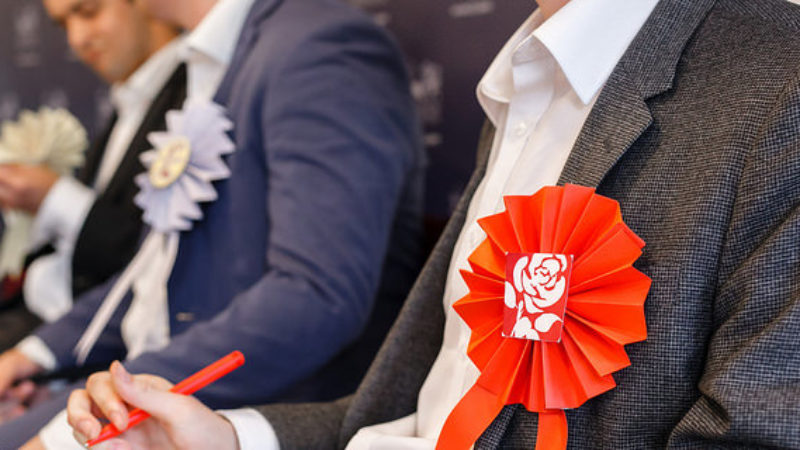

The reaction to the launch of Open Labour, in a letter from over 50 grassroots members and an accompanying article by the Guardian’s Political Editor, has been fascinating (possibly more fascinating than the letter itself). And it has been a great demonstration of why it is needed.
First, full disclosure. I signed the letter. I’m a supporter of the group. But I’ve not been involved in setting it up or organising anything, and so I’m free to be as off-message as I like, as you’ve probably spotted.
The initial response of many members has been “oh great, another faction”. You can’t blame them. We’ve got Progress, Labour First, Momentum, the Fabians, Blue Labour, The Judean Peoples Front, Labour Together – why another one?
And this is Open Labour’s first, and perhaps biggest, problem. What’s the point? What makes it distinctive? How can it avoid being crowded out?
Well, the truth is that the strand of thought that Open Labour represents is by no means a new one, and it’s not one that is really represented in any other group. The ‘soft left’ has a long tradition in the party. Others will be able to recount the history a lot better than I, dating back to before I was born (I’ve got 147 days left and counting in Young Labour, if you must know).
One way of describing this tradition in a kind of shorthand, is to refer to some of its most prominent members and groups. Neil Kinnock. Robin Cook. Mo Mowlam. The Tribune Group. The Labour Coordinating Committee. Jon Cruddas. Ed Miliband? Not that I would argue that Miliband, in the end, was a particularly good example (I can already hear the cries of ‘splitter!’). And that’s part of the problem. The Ed Miliband who ran for Leader in 2010 criticising New Labour’s foreign policy and approach to markets, arguably stood on a rather different platform than the one who ran for Prime Minister in 2015 refusing to commit to reversing cuts in spending and putting “controls on immigration” on a mug.
No, better to talk in terms of principles. There are, in my view, three key things that define the soft left.
First, culture. The last few months have seen the tone of debate within the party turn distinctly nasty, with accusations of bullying and abuse, threats of purges and deselections, MPs attacking each other inside live-texted PLP meetings and outside, and suggestions that any and all criticism of the leadership is disloyal and should be punished. The outright paranoia that has greeted the launch of Open Labour, with suggestions it is a shadowy group of deep-cover crypto-Blairites gearing up for a civil war because it has the temerity to suggest it might not always unquestioningly agree with the Leader. But the centralising and anti-democratic tendencies that started under New Labour were deeply problematic too. None of this is good for the party, and risks letting down those that need a Labour Government most.
Indeed, I for one made good use of my right to disagree with the leadership under Blair, then Brown, then Miliband – I don’t see why I shouldn’t have that right under Corbyn. Of course criticism should be allowed, and of course, it needs to be respectful and constructive. A key principle of the soft left is that the party should be democratic and encouraging of open discussion – hence the name ‘Open Labour’, and the emphasis on “a better quality of debate and political culture within Labour”.
Second, ideology. There is no point being ideologically pure if we never get into power, but, there’s no point getting power if we are not guided by our principles. The soft left stands for maintaining the necessary compromise between purity and electability – as Tom Miller, one of Open Labour’s organisers says, “Labour can be radical and true to itself, but also have a strategy to win over the majority”.
This means a socialist belief in the need to tackle structural inequality, the limits of the market, and the evil of austerity, but without harking back to the ‘glory days’ of monolithic state corporatism and refighting the battles of the 70s/80s. An internationalism that opposes illegal foreign misadventures but refuses to cheer on despotic regimes just because they are anti-Western. A recognition that social class does matter, but so does gender, and sexuality, and age, and race, and religion, and disability.
Finally, practicality. All Labour groups want us to win. But the soft left recognises the need to be honest about where the voters disagree with us, and are committed to actually convincing them and moving public opinion to the left; to “shift mainstream beliefs [and] build an election-winning coalition”.
Not an easy task, but an absolutely necessary one if we want a more equal, more just and more sustainable society. We accept that to do this, those parties that claim to be to our left – whether they be the Greens, or TUSC, or (hilariously) the Lib Dems – must ultimately be defeated at the ballot box. Which is why Open Labour is exclusively a Labour operation for Labour members.
Why does any of this matter? Why can’t we all just get along and agree to agree on everything? Because we don’t agree on everything. That’s good: honest disagreement is a sign of a healthy, vibrant political organisation. These questions – how we conduct our internal discussions, how we balance principles and power, how we win – are important questions that need to be asked. Which is why Open Labour coming along really is great, as it has some pretty interesting answers.




More from LabourList
Government abandons plans to delay 30 local elections in England
‘The cost of living crisis is still Britain’s defining political challenge’
‘Nurses are finally getting the recognition they deserve’